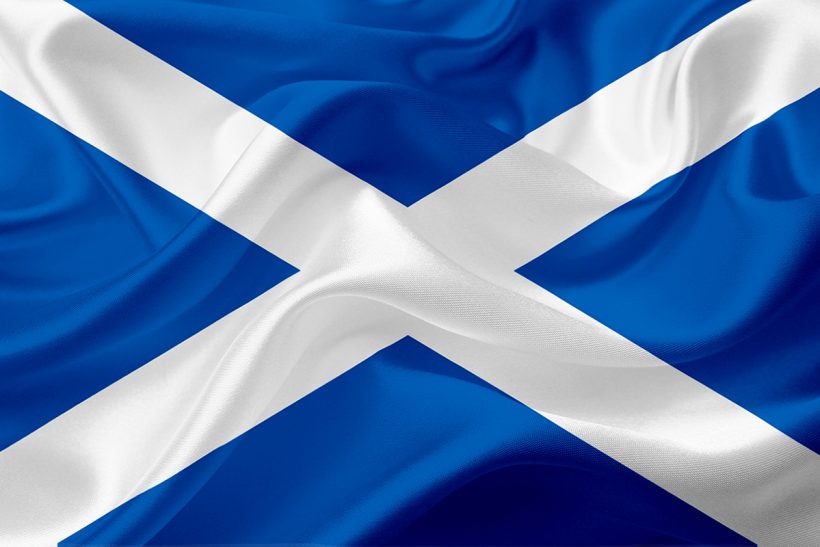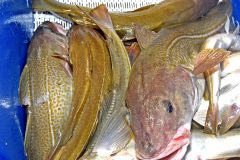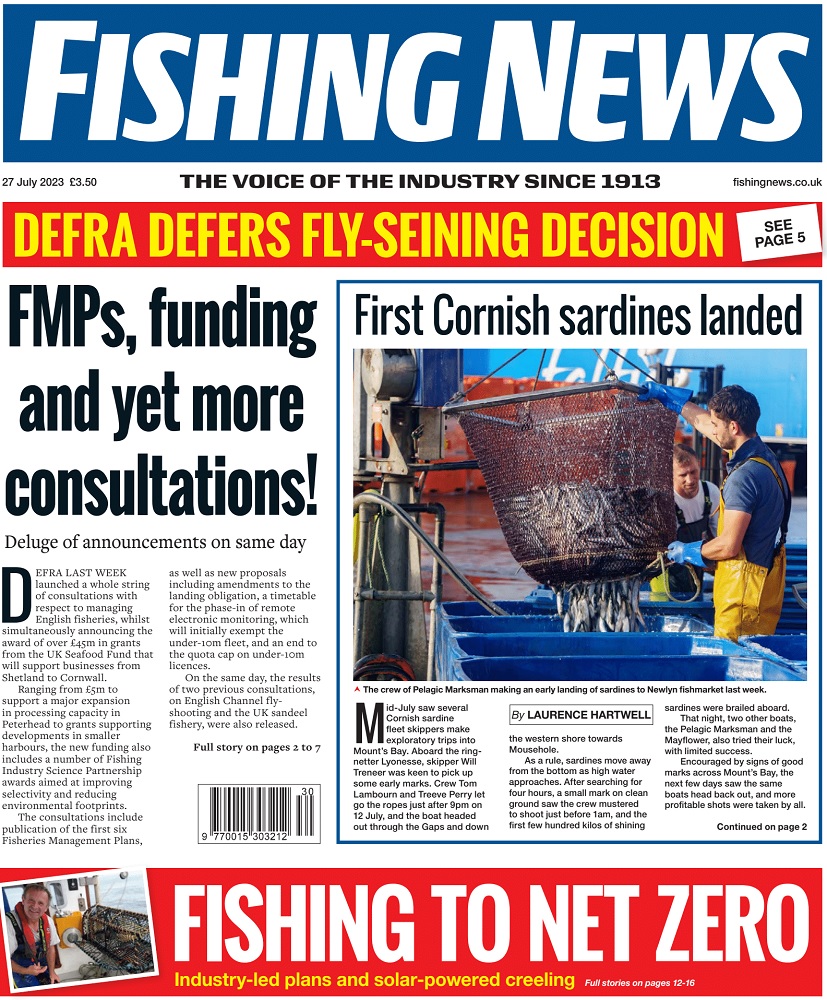Covid-19 leaves non-EEA crewmen stuck
No travel and no money for laid-off men
A significant number of foreign fishermen from non-EEA countries working on transit visas have been left high and dry because of the Covid-19 crisis, and are currently forced to live onboard their vessels, reports Tim Oliver.
Many boats are tied up because of the loss of markets, and with skippers unable to pay their crews, the foreign crewmen are stranded. They are unable to travel home because of lockdown rules, and lack of flights and money. They cannot get any welfare money in the UK because of their status as immigrants, who are subject to immigration control and therefore have ‘no recourse to public funds’ (NRPF).
There are around 1,000 non-EEA fishermen working in Scotland, and Scottish fisheries minister Fergus Ewing said that the Scottish government is ‘deeply concerned about the acute hardship facing non-EEA nationals in the fishing fleet’.
He said that the loss of their livelihoods and the lack of support from the UK government meant that many have little choice but to live on fishing vessels, which was ‘a clear risk to their health during the Covid-19 outbreak’.
He said that the Scottish government has suggested measures to alleviate the problem, and the UK government could act on these suggestions, which were ‘reasonable and pragmatic’. They were also ‘humane, and the actions that any compassionate society would take during a time of crisis and extreme hardship’.
He said: “Given the Home Office’s hostile environment policy and lack of clear guidance, non-EEA crew could be forgiven for being reluctant to rely on the discretion of Border Force officials in allowing them to come ashore.
“Indeed, even if there is a right to enter and remain in the UK, that is worth very little if the crew in question have no means of earning a living. Vessel owners must, of course, do their part in providing for their crews, but that does not absolve the UK government of their responsibilities.”
The Scottish government would continue to press the UK government to treat the fishermen ‘fairly and humanely’.
The minister had earlier written to UK immigration minister Kevin Foster and work and pensions minister Thérèse Coffey to highlight his ‘grave concerns about the ongoing and wholly inappropriate use of transit visas as a means of accessing vital non-EEA labour by the Scottish fishing fleet’.
He pointed out to the ministers that the Covid-19 outbreak had made these fishermen even more vulnerable, and devolution meant there was a limit to what the Scottish government could do to give them the help that was ‘urgently required’.
Stressing the problems the Scottish fleet was experiencing due to the virus and the ‘significant’ number of vessels tied up, he asked for ‘urgent assurances that non-EEA fishers employed on transit visas will not be restricted from entering and remaining in the UK if they are unable to return to their home country and unable to work’.
The only alternative would be to confine such crews to vessels, which presented ‘a significant and unacceptable health risk in the current circumstances’.
He also asked the ministers to temporarily remove the NRPF status for these workers so that they could apply for support, particularly universal credit.
Fergus Ewing expressed ‘more longstanding concerns about the use of transit visas, including the lack of UK employment law protections and restrictions on non-EEA nationals employed on transit visas working within 12 nautical miles’.
He asked that for vessels that were able to fish during the pandemic and employed non-EEA crew, ‘you temporarily relax the arbitrary 12 nautical mile restriction for at least the duration of the Covid-19 crisis’.
UK minister for disabled people, health and work Justin Tomlinson replied that the Scottish Welfare Fund (SWF) provides a safety net for people on low incomes.
He said it was ‘an uncertain time’ for many visa holders due to coronavirus, and that legal visa holders would not be penalised. Visas will be extended to 31 July, but individuals must contact the coronavirus immigration team to advise of their situation.
The MCA said it was aware of the issue, and would enforce fishermen’s legal rights under the Work in Fishing Convention, including their entitlement to be supported until they have been repatriated at the end of their contract.
A spokesperson said: “We are planning an information campaign so that fishermen are aware of their entitlements and know how to contact the MCA if they have a complaint.
“We have invited the fishing federations and the Fishermen’s Mission to notify the MCA of fishermen who are awaiting repatriation, where Covid-19 restrictions are preventing this happening, with a view to securing wider government action to tackle the obstacles to repatriation.”
SFF chief executive Elspeth Macdonald said that the federation had been pressing the case with ministers in Edinburgh and London. “We don’t want people to be suffering hardship. We don’t want our non-EEA crews to be disadvantaged by the situation we’re in, so we’ll do all that we can to support them,” she said.
Martin Foley, chief executive of the Apostleship of the Sea charity, told the Press and Journal: “Obviously, during these difficult times, their vessels might have to remain in port, and there’s a lack of clarity about what they can and can’t do.
“So many skippers end up telling the foreign nationals to remain onboard their vessels. It’s simply not fair – they shouldn’t be treated in this manner.”






